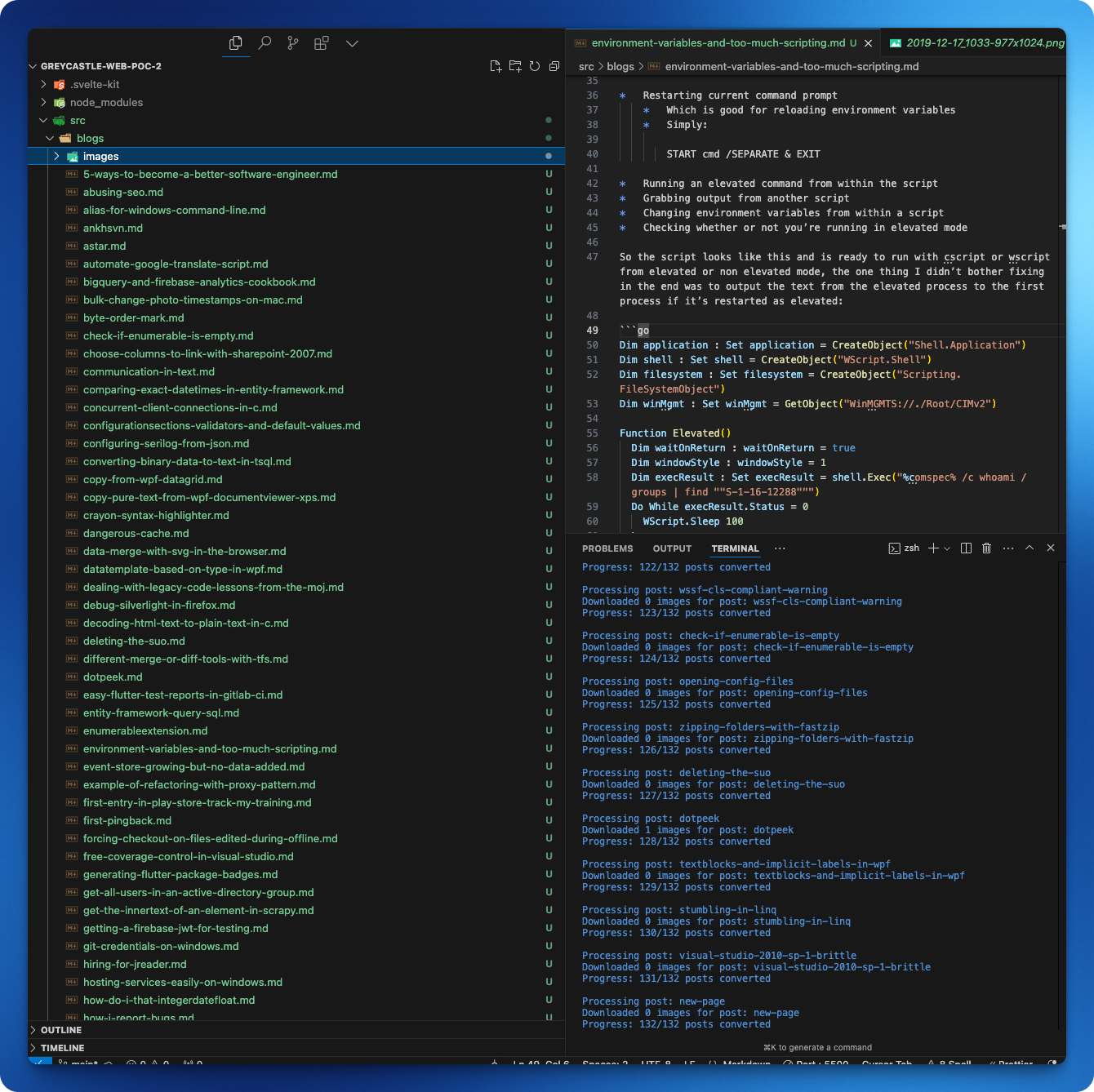wp-to-markdown v1.1.0
WordPress to Markdown Exporter
A Node.js tool to export WordPress posts to Markdown files with YAML frontmatter, while preserving images and code blocks.
Features
- Exports WordPress posts to individual Markdown files
- Preserves YAML frontmatter with post metadata (title, date, categories, tags, etc.)
- Downloads and saves images locally, updating references in the Markdown
- Intelligent code block handling with language detection
- Configurable post limit and output directory
- Supports custom code block class names
Running it
I recommend using npx for simplicity.
npx wp-to-markdown \
--url="https://example.com" \
--username="admin" \
--password="password" \
--output="path/to/output" \
--limit=10 \
--code-block-class="EnlighterJSRAW"Parameters
url: The URL of the WordPress site.username: The username for authentication.password: The password for authentication.output: The path to the output directory.limit: The maximum number of posts to export.code-block-class: The class name of the code block to use.
Limiting
If you want to limit the number of posts exported, you can use the --limit parameter. This is useful if you want to test the tool or only export a subset of your posts.
Code Block Class
If you want to use a custom code block class, you can use the --code-block-class parameter. This is useful if you want to use a specific syntax highlighter.
It's a bit basic and will try to guess the language based on the contents of the code block but it's not perfect, only better than nothing.
Image download
Images are downloaded and saved locally, updating references in the Markdown.
Example output

Advanced usage
Custom post types
If you've added custom post types using some third party plugin or so you can use the --post-type parameter to specify which post types to export.
npx wp-to-markdown \
--url="https://example.com" \
--username="admin" \
--password="password" \
--output="path/to/output" \
--post-type="custom_post_type"If you haven't done so already, you will also need to enable accessing this post type via the REST API.
Add this following in the bottom of the functions.php file, replacing your_custom_post_type with your actual post type:
function register_custom_post_type() {
$args = array(
'public' => true,
'label' => 'Your custom post type',
'show_in_rest' => true,
'rest_base' => 'your_custom_post_type',
);
register_post_type('your_custom_post_type', $args);
}
add_action('init', 'register_custom_post_type');Example:
npx wp-to-markdown \
--url http://some.wordpress.com \
--username admin \
--password 'xxx' \
--output listings \
--custom-post-type listings